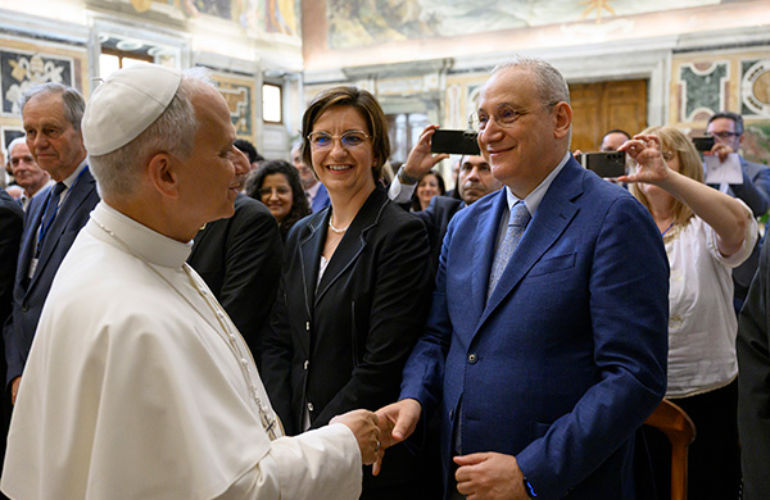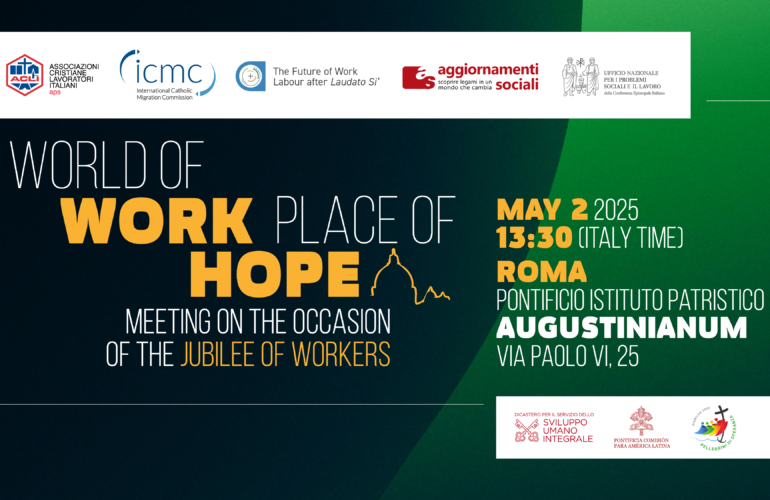ICMC Members Take Action to Combat Human Trafficking and Assist Victims and Survivors
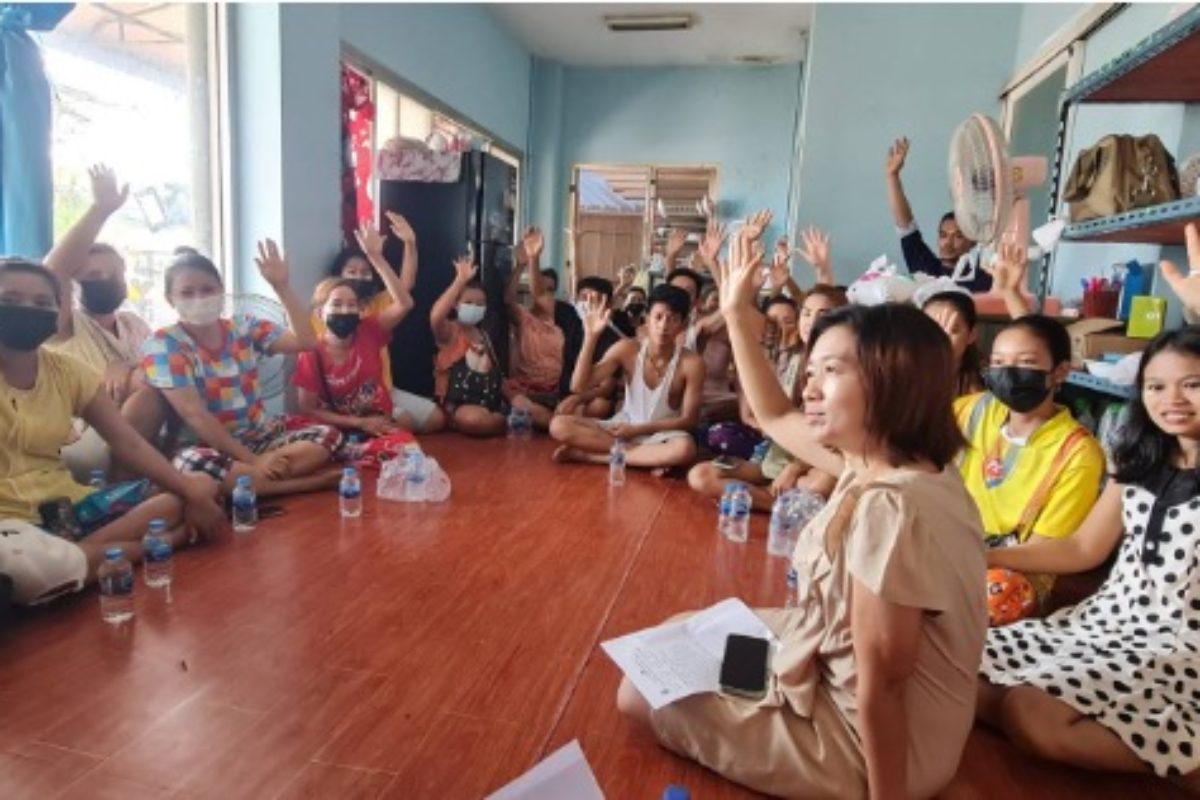
On the occasion of the World Day Against Trafficking in Persons, held each year on 30 July, we take a look at the growing global phenomena of human trafficking and the related work of ICMC members around the world
“Human trafficking disfigures dignity. Exploitation and subjugation limit freedom and turn people into objects to use and discard. And the system of trafficking profits from the injustice and wickedness that oblige millions of people to live in conditions of vulnerability.”
Pope Francis’s February 2023 remarks on human trafficking echo the message of the 2023 United Nations World Day Against Trafficking In Persons, which takes place each year on 30 July.
The day’s theme for 2023 is ‘Reach every victim of trafficking, leave no one behind.’ In the context of trafficking in persons, the UN defines ‘leaving people behind’ as failing to end the exploitation of trafficking victims, failing to support survivors once they are free, and leaving identifiable groups vulnerable to traffickers. It calls on States to improve their efforts, including by strengthening national frameworks for the identification and protection of victims of trafficking, especially during times of crises.
What is trafficking?
The United Nations Office on Drugs and Crime (UNODC) defines human trafficking as ‘the recruitment, transportation, transfer, harboring or receipt of people through force, fraud or deception, with the aim of exploiting them for profit.’ Trafficking is distinct from human smuggling, which generally involves the consent of those being smuggled, and is undertaken for two broad purposes: sexual exploitation and obtaining forced or coerced labor from a person.
Trafficking takes place in a wide range of contexts all over the world, and men, women, and children of any background can become victims. In addition to the grave human rights violations suffered by victims, trafficking promotes community and family breakdown, supports organized crime, and imposes significant economic costs for States in terms of crime and policing.
Trafficking in a global context: more victims, fewer convictions
Although the nature of the crime of trafficking means it is impossible to estimate how many people it affects, the number of victims detected worldwide has increased by just under 300% since 2003. In many instances, the identification of such crimes depends more on reporting by those affected than on implementation of detection measures put in place by national authorities: in 2020-21, 41% of victims self-reported their trafficking situation to authorities.
Recent years have seen a worldwide escalation of trafficking risks, as global economic crises, conflict, and the climate emergency drive inequality and displacement. Many millions of people in communities around the world are increasingly marginalized and hence more vulnerable to being targeted by traffickers. Undocumented migrants are particularly at risk, since they often are deprived of full enjoyment of a wide range of human rights.
Research conducted by ICMC Europe in 2020 demonstrated how COVID-19 pushed many forms of trafficking underground, rendering them harder to detect and leaving trafficked people and those at risk of trafficking more vulnerable than ever. Global conviction rates fell sharply during the COVID era: in 2020 reducing by 27% from convictions secured in 2019, and by 44% from convictions secured in 2017.
Reduced global detection capacity caused by COVID-19 brought a sharp decrease in the global detection of victims, after several years of steady increase. This reduction was particularly notable for victims of trafficking for sexual exploitation, as traffickers moved them to less visible locations and/or moved their exploitation online. Additionally, as new forms of exploitation emerge, more men and boys are being identified as victims, and increasing numbers of victims report experiences of serious physical violence.
While trafficking is present around the world, there are vast regional differences in both the types of trafficking and the victims it impacts.
In Europe, the Middle East, and North Africa, more males are detected, primarily men trafficked for forced labor and boys for forced criminal activity. More women and girls trafficked for sexual exploitation are detected in North and Central America and the Caribbean. Other regional variations exist, such as the high rate of child trafficking for forced labor in sub-Saharan Africa, and trafficking for forced criminal activity in Western and Southern Europe.
ICMC members around the world: reducing trafficking risks, assisting victims
Around the world, ICMC members are responding to Pope Francis’ words via their work to combat human trafficking and mitigate its effects. Working in a diverse range of contexts, our members are supporting and assisting trafficking victims, building awareness and resilience in vulnerable communities, and developing new partnerships and alliances to achieve longer-term change.
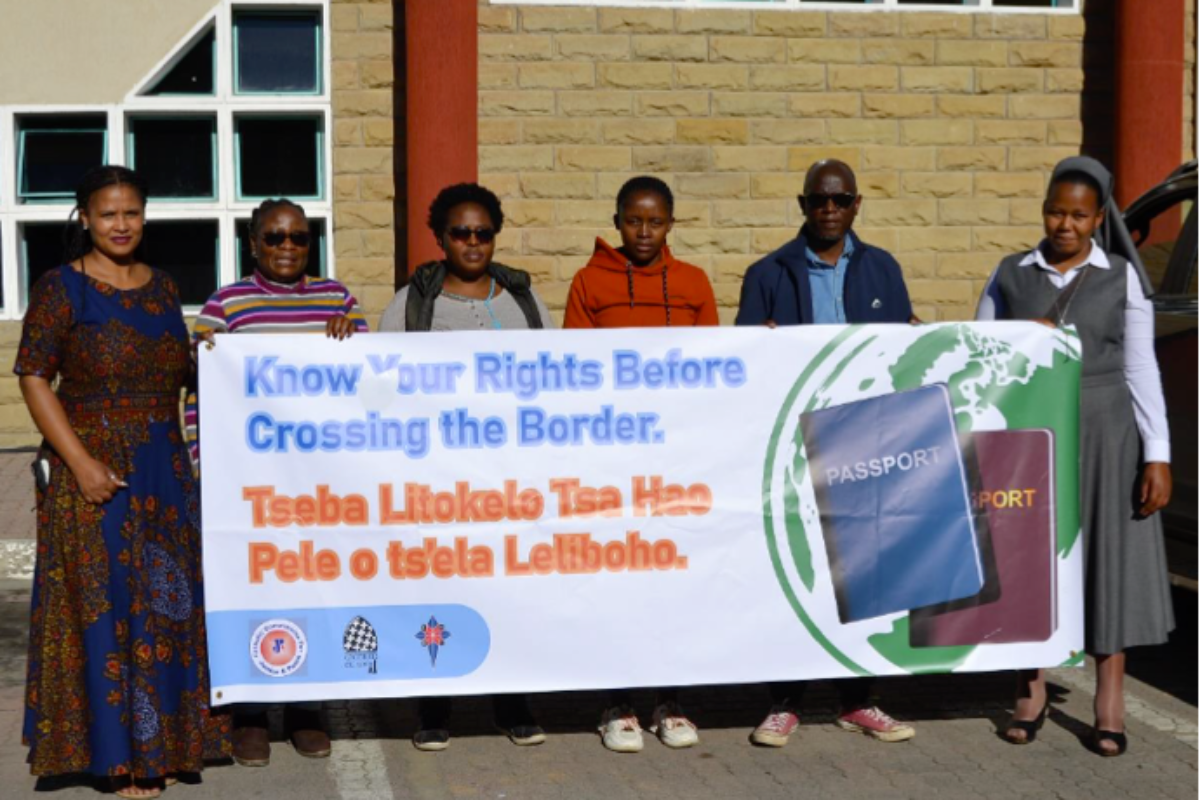
CAR has suffered decades of instability since its independence in 1960, and since renewed conflict broke out in 2012, just over 1.9 million Central Africans have been displaced. Despite ongoing violence, almost 100,000 refugees returned to CAR independently between 2017 and 2021. For some, return is a positive choice based on improved circumstances, while others are forced to return due to instability in the countries where they sought refuge. Many returnees are victim-survivors of human trafficking.
ICMC is partnering with CEMIR to implement a series of projects designed to support more effective integration for returnees in CAR, many of whom are survivors of trafficking. The projects aim to respond to their specific needs and situations and complement the humanitarian assistance provided by international organizations and other civil society actors.
Many returnees face severe challenges for their integration, not the least because their homes were destroyed in the conflict, leaving them homeless and forced to live in government ‘repatriation camps’. From December 2022 to February 2023, an ICMC-CEMIR project resulted in the construction of 30 new dwellings in two locations on the CAR border with the Democratic Republic of the Congo (DRC). These homes are now inhabited by 30 returnee families (240 people).
Returnees are often highly traumatized due to their experiences of conflict, trafficking, and displacement, and the areas to which they are returning lack sufficient expertise to respond effectively to their needs. From May to June 2023, a CEMIR project supported by ICMC provided training and capacity-building for more than 100 participants involved in accompanying returnees and supporting their integration, drawn from diocesan workers, teachers, religious leaders of other denominations and beliefs, vocational training centers, and relevant CEMIR staff.
Three additional CEMIR projects will be supported by ICMC in the coming months and years, all of which address the needs and support the integration of returning survivors of trafficking. From August 2023, a 12-month project will support 200 children to reintegrate into mainstream education, funding school expenses and accompanying their progress for 12 months. Two further projects will be launched in late 2023, providing literacy and vocational training for former child soldiers and capacity-building on safeguarding, child protection, and responding to traumatized children for teachers in schools receiving returning children.
The Southern African Catholic Bishops’ Conference (SACBC), ICMC’s member in Botswana, South Africa, and Eswatini, has since 2014 sought to address the needs and challenges of refugees and migrants in the Southern Africa region. In 2020-21, SACBC worked with Caritas South Africa to support Church organizations providing direct assistance for refugees and migrants in parishes located in South Africa’s border areas.
In Musina on the Zimbabwe border, for example, the busiest port of entry to South Africa and a major transit route for refugees and migrants from Zimbabwe, the Democratic Republic of the Congo, Rwanda, and Burundi, the SACBC resourced the Roman Catholic Women’s Shelter to provide emergency assistance and accommodation for women who had experienced sexual violence in their country of origin or during their journey to South Africa, and their children.
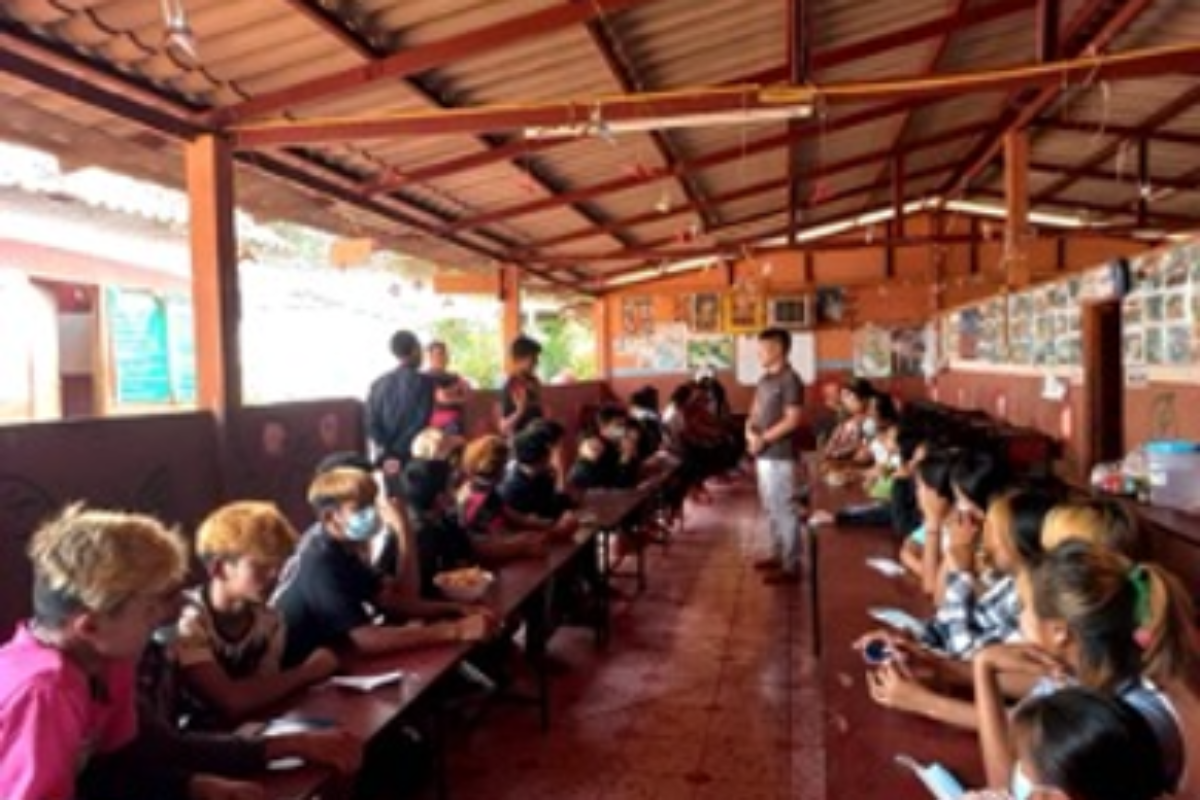
Increased movements of migrant labor to Thailand since the 1990s means registered migrant workers now make up more than 10% of Thailand’s workforce. Estimates vary as to the number of undocumented migrants in Thailand, ranging from one to 2.5 million. Thailand is also a major sending, transit, and destination country for human trafficking, and both ineffective law enforcement and corruption mean many endure poor and exploitative working conditions and are at increased risk of human trafficking.
NCCM’s Human Development for Migrant Workers program provides training for migrant workers at government drop-in centers that they can approach on arrival, covering legal aspects of employment in Thailand, advice on accidents at work, and assistance for those who are sick. To reflect the acute vulnerability of migrant workers to human trafficking in Thailand, the training covers the risks of human trafficking and community and individual strategies to manage them.
In South Africa, following the 2014 launch of a national campaign to raise awareness about the scourge of human trafficking in Mozambique, in October 2022 the Episcopal Commission for Migrants, Refugees and Displaced Persons (CEMIRDE), a Commission of ICMC member the Episcopal Conference of Mozambique (CEM), held a series of workshops on human trafficking for migrant communities in South Africa. The workshops aimed to raise awareness about human trafficking for people on the move, with a specific focus on migrant communities living and working in South Africa.
Following an acute crisis at South Africa’s borders in December 2021, ICMC member the Southern African Catholic Bishops’ Conference (SACBC)‘s Pastoral Care of Migrants and Refugees (PCMR) joined with the Inter-Regional Meeting of the Bishops of Southern Africa (IMBISA), and the Vatican’s Migrants and Refugees Section to formulate a response to the acute vulnerability of migrants and refugees in border areas.
Supported by Caritas Italiana and the International Catholic Mission Society (Missio Munich), a pilot project on cross-border pastoral care and advocacy was implemented in collaboration with four ICMC members: the Episcopal Conferences of Zimbabwe, Mozambique, Lesotho, and Southern Africa, coordinated by Caritas South Africa and IMBISA.
Each Episcopal Conference engages with a wide range of organizations at the borders, including local organizations, dioceses, and volunteers in parishes, and collaborates with South African ports of entry. Their work provides coordinated advocacy and pastoral care for people crossing the borders into South Africa and those who have been deported. Project staff and volunteers inform those crossing of the legal requirements to enter South Africa, providing information in migrants’ and refugees’ languages at the borders of Zimbabwe, Mozambique, Lesotho, and South Africa. This activity has helped thousands of people cross the borders with the proper information and correct documentation, substantially reducing their vulnerability to trafficking, and strengthened both the knowledge of migrant situations at the borders and leadership on migration in border areas.
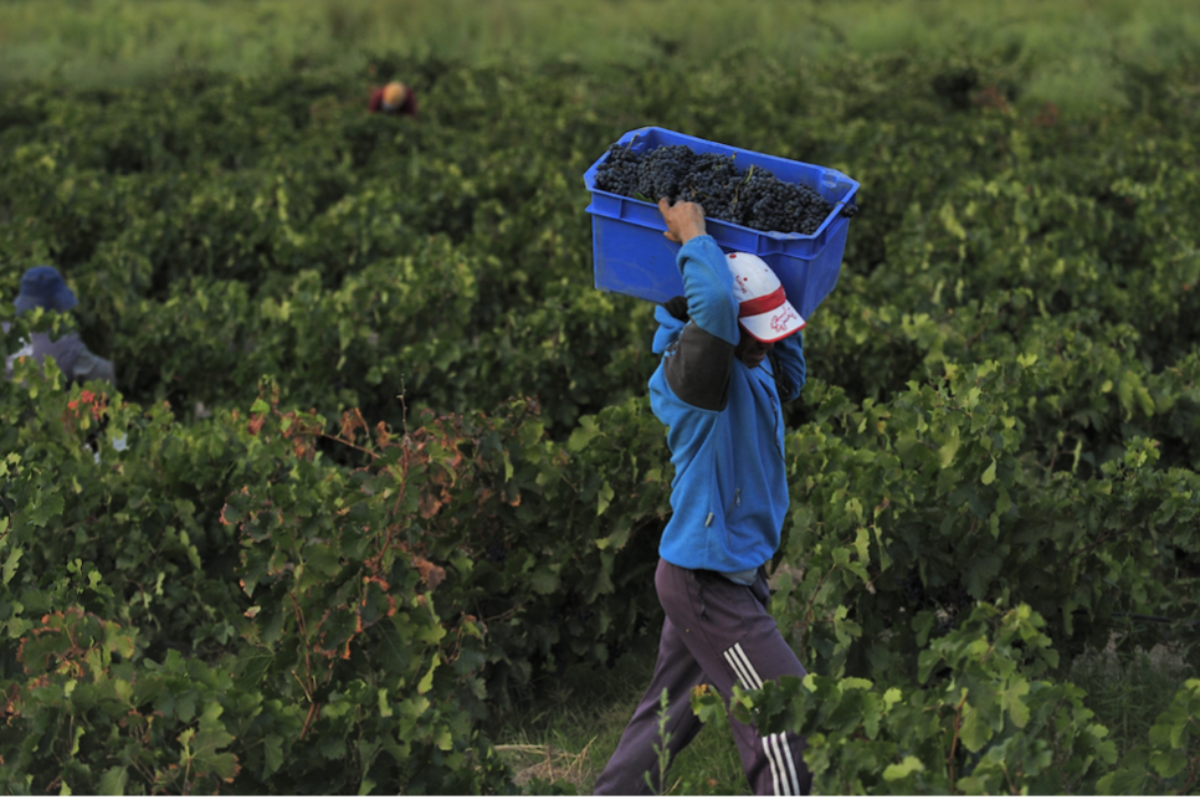
The Bishops’ Conference Justice and Peace Commission, a Commission of the Episcopal Conference of Argentina, ICMC’s member in Argentina, has a specific ‘No to Trafficking’ team dedicated to raising awareness of trafficking and building institutional and organizational capacity to combat it. In March 2023, the team hosted a national roundtable on ‘Trafficking and exploitation of persons in the tourism sector’.
Held in Buenos Aires on the occasion of the 3rd World Forum on Human Rights 2023, the roundtable brought together State and civil society participants, and addressed human trafficking, migration, and human mobility via a series of panels and workshops. The roundtable enabled participants to exchange experiences, create networks, and expand collaborative action toward the eradication of trafficking.
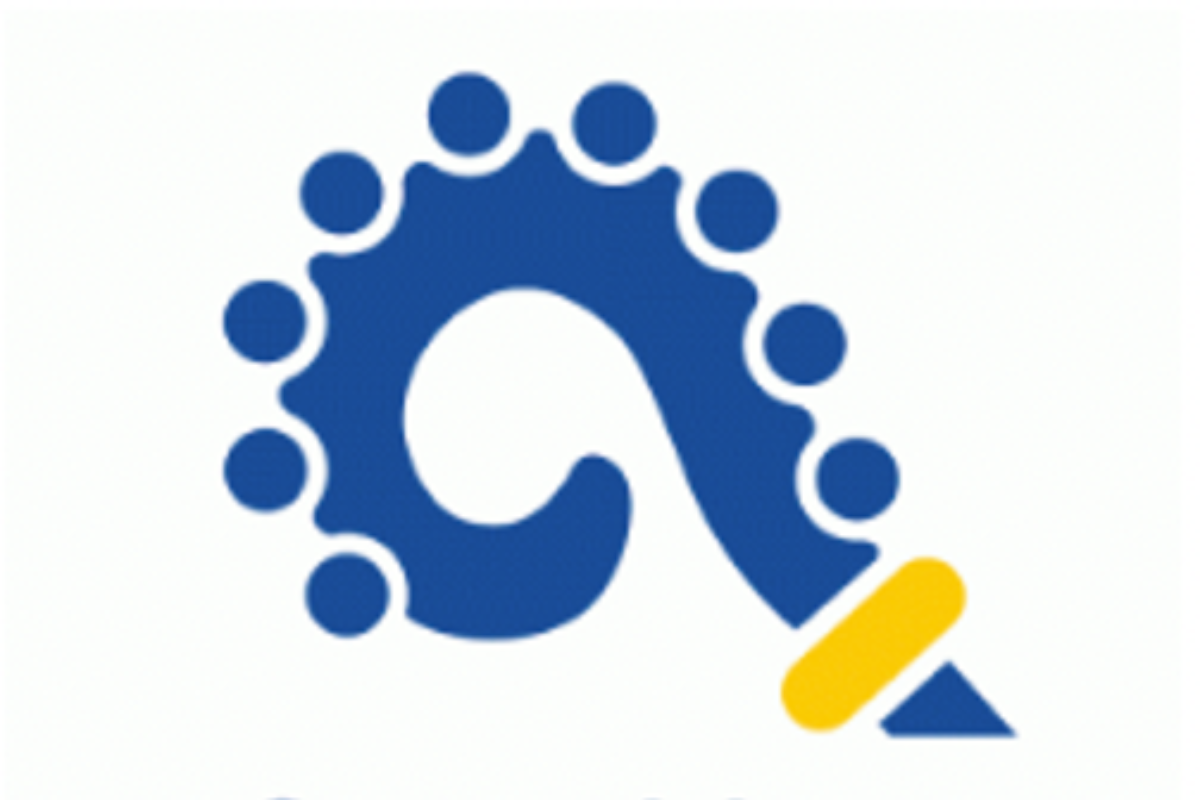
The Santa Marta Group’s six-point strategic plan was launched in February 2023, at an event hosted by the UK Diocese of Salford. One of the plan’s key strategic priorities is working with governments and businesses to ensure supply chains are trafficking and slavery-free. At the plan’s launch event, the Diocese of Salford presented a new Diocesan Code of Conduct for Suppliers, which provides a framework for obtaining purchases, services, and works that avoid exploitative labor practices and uphold the principle of human dignity. The new Code will be rolled out across central suppliers and then to parishes. ICMC regularly participates in Santa Marta Group meetings held at the Vatican and at regional levels.
The Catholic Response for Ukraine (CR4U) Working Group, which is convened by ICMC and includes major Catholic-inspired humanitarian agencies, including Caritas Internationalis and Caritas Europa, Jesuit Refugee Services at international and European levels, the Sovereign Order of Malta, the Council of Episcopal Conferences in Europe (CCEE), the Commission of the Bishops’ Conferences of the European Union (COMECE), and others, made available Guidelines on Prevention and Response to Human Trafficking for Displaced Persons in Ukraine and Ukrainian Refugees in neighboring countries, as a result to emergency situation in Ukraine resulting from the February 2022 invasion and other relevant information.
World Day Against Trafficking In Persons, 30 July 2023.
The Right Way handbook on facilitating integration for survivors of human trafficking, published by ICMC Europe and partners in the Right Way project (available in English, French, Italian and Spanish).

Rachel Westerby
Independent writer and researcher on migration, refugees and human rights.
